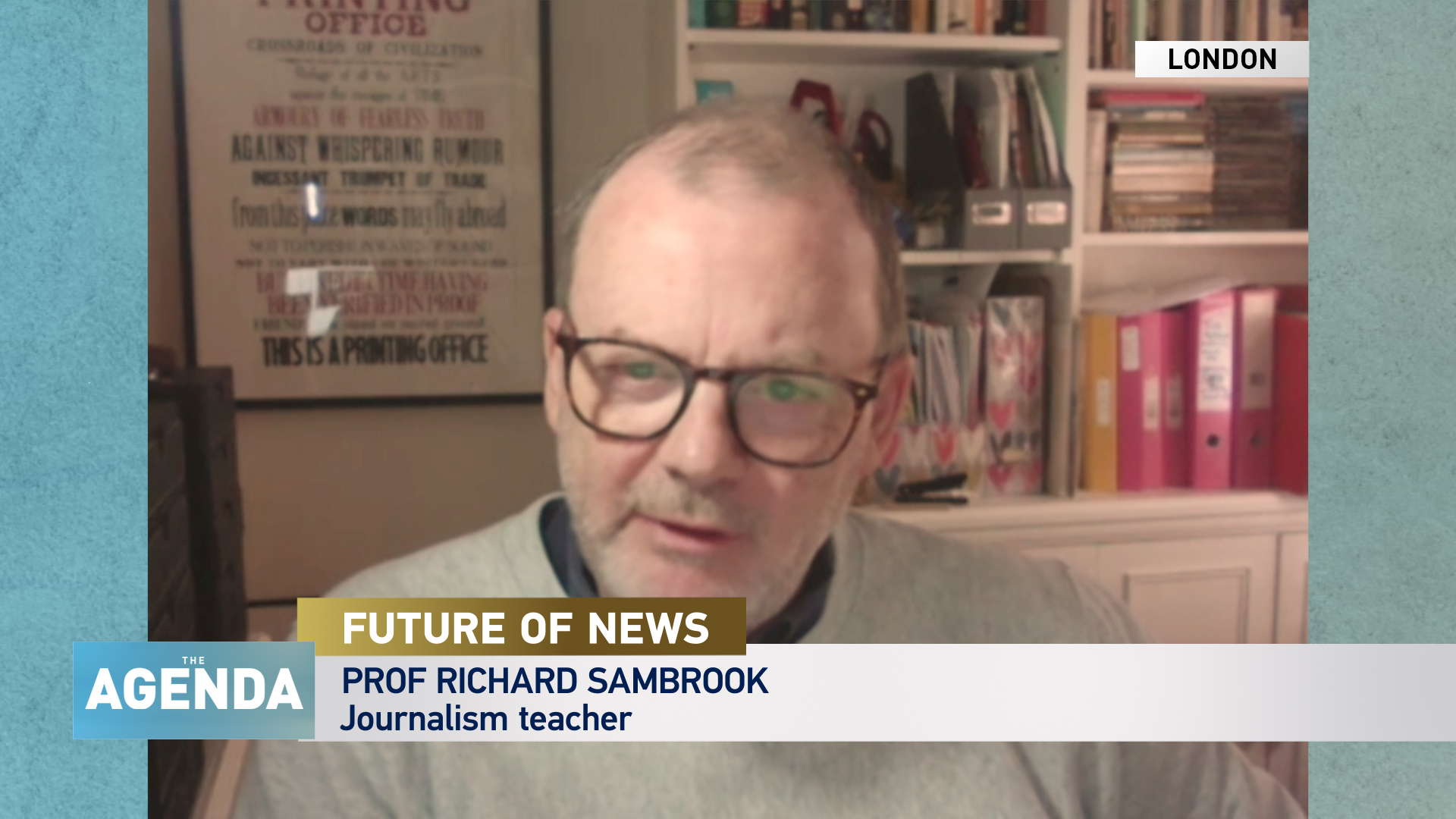11:50

What will the next generation of newsrooms need to consider? Stephen Cole discusses trust, the battle of the bots and platform paradox with Professor Richard Sambrook, Former BBC Executive and Director of the Centre for Journalism at Cardiff University, alongside Professor Lucy Kueng, strategic advisor and digital disruption expert
"I'm optimistic about the business of journalism" said Professor Sambrook."... but the skills they need are changing very rapidly.
"[Journalists] have to become information professionals. We're awash with information […] driven by algorithms and bots and lots of other things. They need to be professionals in understanding that and understanding how to sift through and provide information of value to their audiences in a way those audiences want to consume."

Prof Kueng explains why news being shared online isn't entirely beneficial:
"The challenge for news organizations is the minute their news content ends up on social media platforms they lose contact with their consumers (…) and a sense of who is consuming it and what they want.
"The problem is those platforms are the bridges to the next generation – they won't survive unless they find a way to operate on those platforms."
Prof Sambrook adds:
"Just as when other technologies when they've come along haven't killed off completely the old technology…Radio didn't kill print, television didn't kill radio and so on. The internet is not going to kill television…it's just audiences aren't as strong as they have been in the past.
"When Covid first hit we saw an enormous spike in TV audiences…there are times when the world seems to be collapsing around people's ears that they actually do come back to the big screen in the living room to be told what the hell's going on."
But Prof Kueng argues that, "[News outlets have] a foot in the linear past and the other foot in the digital future…I think the arguments are unassailable, they've got to go digital."